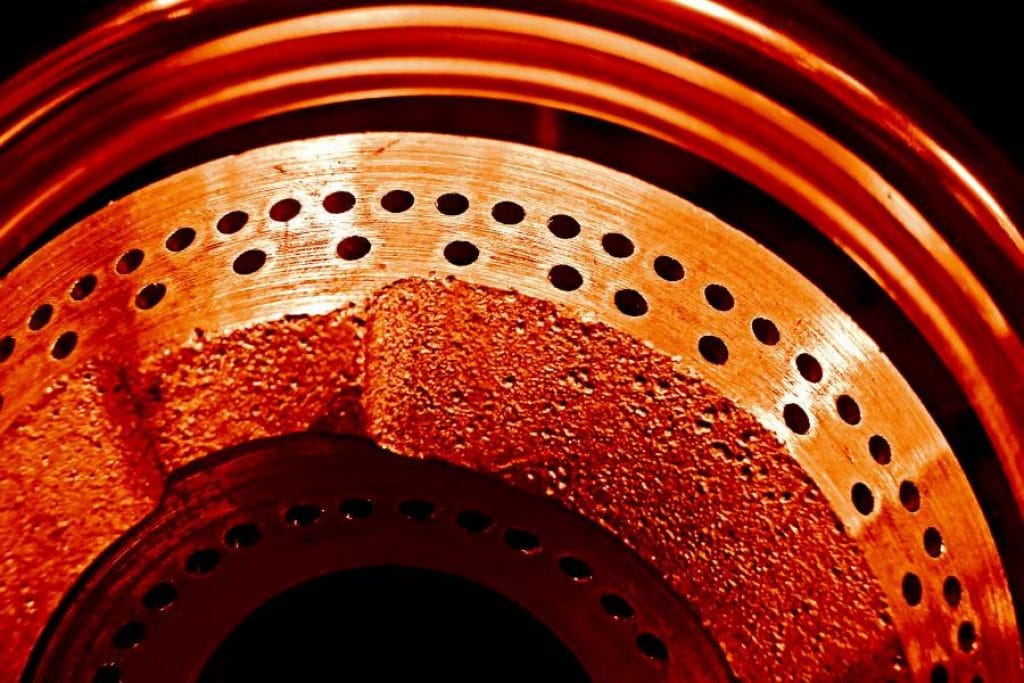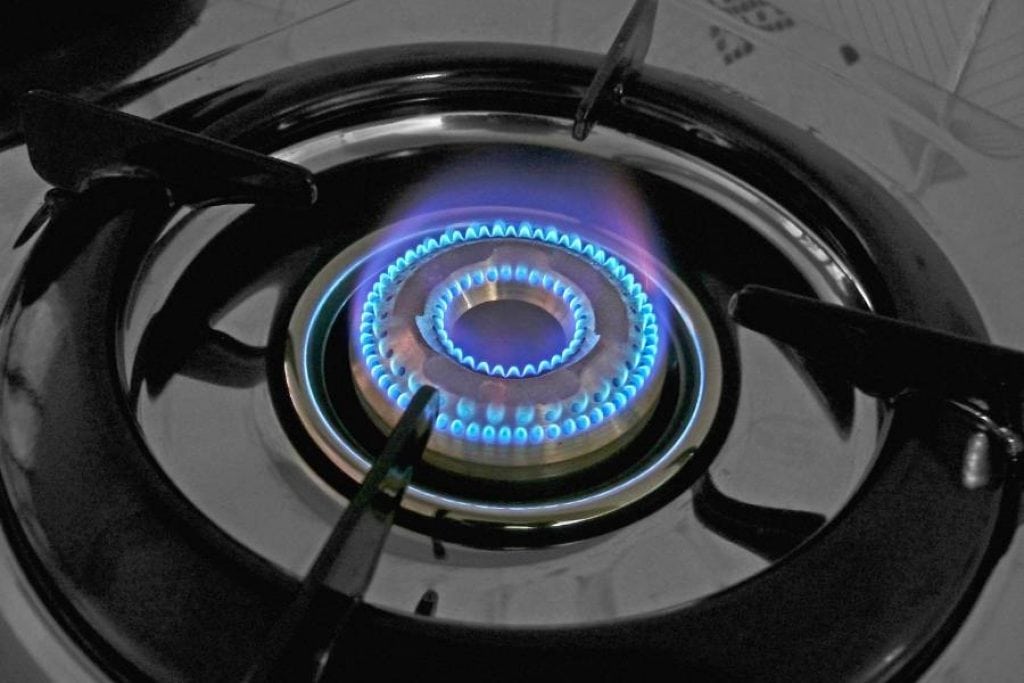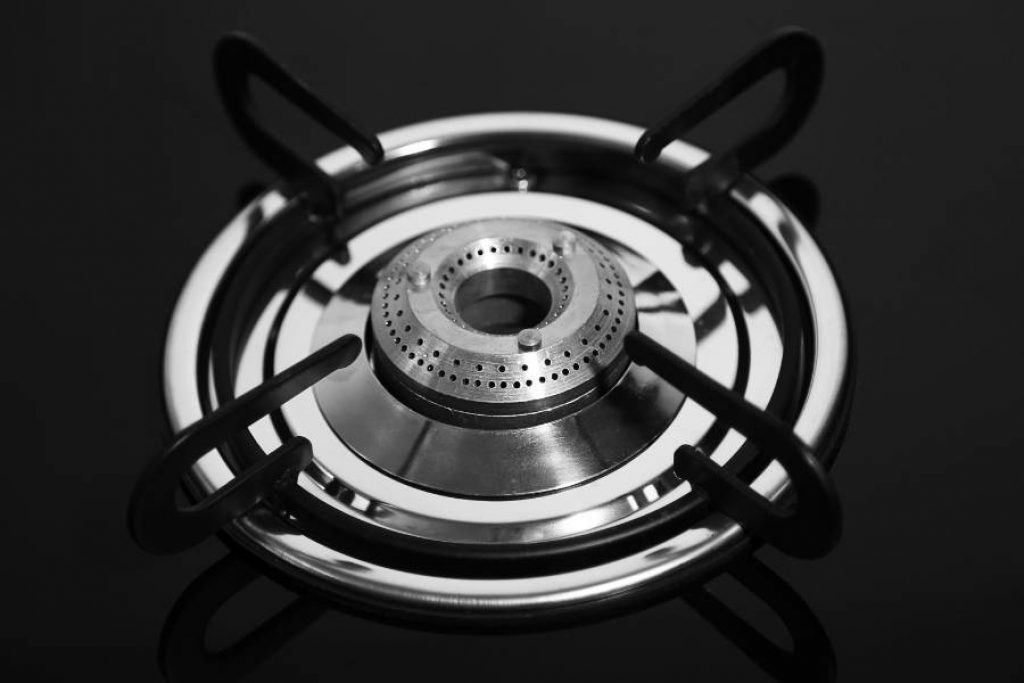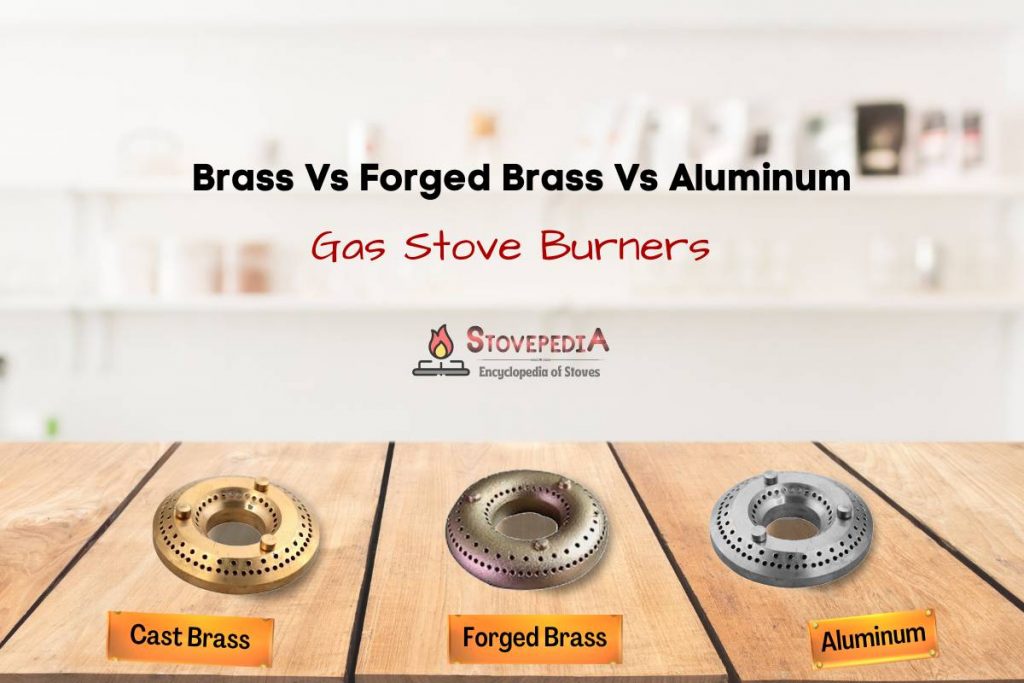When selecting a new gas stove or upgrading your old one, burner material is one of the biggest factors that you should consider. After all, the burners are the most important component of your gas stove, and their performance determines how efficiently you can cook.
As you might notice, most gas stoves have burners made from brass, forged brass, or aluminum. Unless you have a proper understanding of each material’s advantages and drawbacks, they all might seem the same to you.
However, a gas stove burner’s material directly impacts factors like its durability, performance, and appearance. Considering that a gas stove can be a pricey appliance, you should always make an informed decision when buying one. This article will tell you everything you need to know about the different burner materials and help you choose the right one.
What Is A Brass Burner?
Brass or cast brass burner is made of an alloy of zinc and copper. This produces an elegant golden hue, making it a popular burner for your kitchen. Brass burners are incredibly durable and can distribute heat evenly on gas stoves. Cast brass burners have been around in kitchens since the late 1800s.
The stunning appearance of brass gas burners makes them popular in households. Compared to aluminum burners, they tend to be more expensive. However, brass has a greater heat-retaining capacity than aluminum.
What makes them popular is their high resistance to grime and stains. Besides, if you are looking for outdoor gas burners, they would be the perfect match.

Advantages Of Brass Burners
- The melting point of brass burners is high, around 1600°F to 1700°F. This prevents them from deforming under high temperatures. No wonder why these burners make their way to restaurants and professional kitchens.
- You can use gas stoves with brass burners indoors and outdoors due to their amazing ability to resist stains. They don’t tend to corrode or develop rust.
- Brass burners can retain heat longer and distribute the same faster. This eases up the cooking process significantly.
- Brass burners don’t emit harmful gases, unlike some of the other burners. This makes it an eco-friendlier option to go for.
Limitations Of Brass Burners
- Brass burners tend to be more expensive compared to aluminum ones for gas stoves.
- Aluminum burners score a point over brass burners as the latter doesn’t heat up too fast. This is because of the higher density of brass, which slows down the cooking process.
- Brass burners look shimmering, resembling gold. This might not make it suitable for all types of kitchens, particularly if you have more aluminum or silvery finishes in other appliances.
What Is A Forged Brass Burner?
Just like cast brass burners, forged brass burners also contain copper and zinc. The primary difference between these two types of gas burners is the quality. Forged brass gas burners come with a higher endurance and heat-retention capacity than cast brass burners.
Professionals forge these burners by using hand tools, heating the brass to make it soft. Then they roll and hammer the material to shape it in the desired way.
Forging refers to the process of making the metal durable and strong. The manufacturers deploy compressive forces to forge the brass. Different methods are applicable in the forging process, such as warm forging, hot forging, and cold forging. Simply defined, forged burners have the forging process involved in the manufacturing process.
Forged burners come inherent with all the properties that you can enjoy in a cast brass gas burner on the gas stove. However, the manufacturing process gives forged burners an upper hand as they are more robust and durable.

Advantages Of Forged Brass Burners
- The heat retention capacity and endurance of forged brass burners is higher than ordinary brass burners.
- These burners tend to be leakproof and porous.
- In terms of appearance, forged brass gas burners look more attractive on the gas stoves.
- They last longer than other types of burners, delivering value for your money.
- Compared to ordinary brass, they are more durable, making them ideal for commercial kitchens.
- Forged brass gas burners have even higher melting points than common brass burners. This enables them to withstand extreme temperatures.
- The heat distribution and heat generation processes are much better in forged brass gas burners.
Drawbacks Of Forged Brass Burners
- Along with high durability, forged brass burners come at high prices. So, be prepared to shell out much higher than aluminum gas burners.
- The heating process takes longer than aluminum burners due to the high density of brass.
You might not need such a durable and high-quality material for ordinary kitchens, making it an extravagant purchase.
What Is An Aluminum Burner?
Aluminum burners are extensively used in most households thanks to their fast heating process and affordable pricing. Although they heat up faster, they do not retain heat so long as brass or forged brass burners on gas stoves. As a result, your burner would cool down quickly. With households having children around, this is a safer option.
In terms of durability, aluminum burners don’t last as long as brass and forged brass burners. However, you need to pay less for these burners, compensating for this loss. If you are looking for an affordable and efficient burner, go for aluminum gas burners.

Advantages Of Aluminum Burners
- Aluminum burners are highly resistant to corrosion. So, households looking for low-maintenance options can go for these burners.
- They tend to heat up fast, pacifying the cooking process using the gas stove. You can quickly finish off your cooking process with these burners in your kitchen.
- They don’t tend to retain heat too long. This implies that you don’t have the risk of accidentally burning your finger by touching the burner during direct cooking.
- The best part of aluminum gas burners is their affordable price. In case you don’t want to go for a one-time investment like a forged brass gas burner, you can settle with this one.
- Aluminum gas burners seamlessly blend into ordinary kitchens. So, when you get one for your home, the burners won’t look out of place.
Disadvantages Of Aluminum Burners
- The low melting point of aluminum makes it unsuitable for commercial kitchens. In case of continual exposure to heat, the metal might deform.
- Aluminum gas burners don’t retain heat for too long. Therefore, you need to ignite the oven or stove time and again.
- Compared to cast brass and forged brass burners, aluminum burners do not last that long.

Brass Vs Forged Brass Vs Aluminum Burner Comparison
| Point Of Difference | Forged Brass Burner | Cast Brass Burner | Aluminum Burner |
|---|---|---|---|
| Heat Retention and Distribution | Forged brass burners are the best in retaining and distributing heat. | Cast brass burners perform almost as good as forged brass burners in terms of heat retention and distribution. | The heat retaining capacity of aluminum burners is not good as the other two types of burners. |
| Heat Transfer Rate | Heat transfer rate for forged brass gas burners is decent, but not as good as aluminum burners. | Cast brass burners have a moderate heat transfer rate, but perform poorer than aluminum burners. | Aluminum burners have the best heat transfer rate, and can heat up in quick time. |
| Durability | Forged brass burners last the longest and purchasing this appliance involves a one-time investment. | Cast brass burners are more durable than aluminum burners, but don’t match the lifeline of forged brass burners. | Aluminum burners are the least durable of the three categories. Exposure to prolonged heat can also deform the burner. |
| Safety | Forged brass burners are ideal for commercial kitchens with no children around as they can cause serious burns. | Cast brass burners have a high density and retain heat for long. This exposes children to injuries like burns. | As aluminum gas burners lose heat quickly, you are less susceptible to accidents and burns. |
| Price | They cost the highest among the three types of gas burners. | Although expensive, they are relatively cheaper than forged brass gas burners. | Aluminum gas burners are the cheapest and the most affordable burner. |
| Where to Use? | You can use a forged brass burner on gas stoves in commercial kitchens or places with extreme temperature requirements, both indoors and outdoors. | Brass burners are suitable for indoor and outdoor use where the temperature requirements are consistently high. | Aluminum burners mostly find their use on stoves in domestic kitchens due to their low melting point and high safety features. |
Forged Brass, Cast Brass And Aluminum Burner – Which Is Best?
When it comes to choosing a suitable burner for your gas stove, it’s logical to consider your priorities. Broadly speaking, forged brass burners turn out to be the best when considering all the pros and cons. However, it’s worth noting that cast brass and forged brass burners are almost the same in terms of durability and features.
However, if you are looking for an affordable option, you need to vouch for an aluminum gas burner. Again, this burner has its disadvantages, like low durability and melting point. So, it makes sense to chalk out your requirements before deciding on the one you would need.
If budget isn’t a constraint for you, and you are ready to shell out a high value for the longest-lasting gas burner, go for a forged brass burners. However, this would be ideal for commercial kitchens, considering the safety issues during cooking on gas stoves.
Again, if you are someone looking for quick-heating solutions, aluminum burners would match your requirements. For something in between these two, you can vouch for cast brass burners for your gas stove. In fact, most of the best gas stove brands use brass burners to manufacture their products.
Now, you are better poised to decide the type of burner that would suit your kitchen. You can use your discretion to make an informed purchase based on your preferences and requirements.

